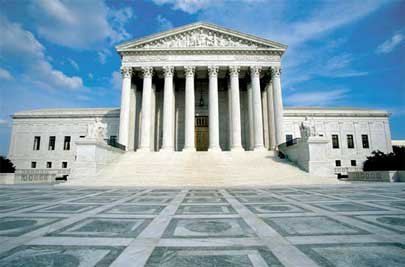May 14, 2020 (LifeSiteNews) — The U.S. Supreme Court heard oral arguments this week in the cases of Our Lady of Guadalupe School v. Morrissey-Berru and St. James Catholic School v. Biel, during which the justices expressed receptiveness to arguments that the government has no say in whom a church school chooses to teach its religion classes.
LifeSiteNews has previously covered the cases, which concern two California Catholic elementary schools’ right to select educators who reflect their understanding of faith, free from government interference. The religious liberty legal firm Becket Law is representing the schools, who are facing a lawsuit from two teachers fired for unsatisfactory performance, Agnes Morrissey-Berru and Kristen Biel.
The 9th Circuit Court of Appeals sided with the teachers; Becket argues that the schools’ hiring and firing decisions fall under a “ministerial exemption,” meaning religious institutions have the right to decide whom they want imparting the faith to others, free from government interference — even when the employees in question, in this case teachers, are not “ministers” in the strictest sense.
Monday’s arguments suggested that a majority of the justices were receptive to the school’s position, the Washington Blade, putatively “America’s LGBT News Source,” reported.
“It’s my understanding (the teachers) actually led them from time to time in prayer or took them to service, things like that,” noted conservative Justice Clarence Thomas, who tends not to speak up during oral arguments.
In a similar vein, Justice Samuel Alito argued that an employee’s formal job title was insignificant when it comes to determining whether he falls under the ministerial exemption and that the substance of a worker’s duties is what matters.
“How does it even help to understand the person’s role?” he asked. “Suppose you have two people who do exactly the same thing in two different religiously affiliated schools, but one has a title and the other one doesn’t have a title, other than the title of the teacher. Why should the presence or absence of this title make any difference?”
The court’s liberals took the opposite approach, with Justice Ruth Bader Ginsburg suggesting that the ramifications of siding with the schools could be “staggering,” raising the hypothetical scenario of a female teacher who has religious duties but also “reports a student’s complaint of sexual harassment by a priest and is terminated.” That teacher would have “no remedy” in Ginsburg’s telling.
Justice Elena Kagan invoked the frequency and nature of specific religious duties, with a church organist qualifying as ministerial but a “math teacher who is told to teach something about Judaism for 10 minutes a week” not qualifying.
“Eight years ago in Hosanna Tabor — the pretext inquiry, the notice requirements, the idea that freedom of association makes freedom of religion entirely unnecessary — all were raised in Hosanna Tabor and rejected unanimously,” Becket attorney Eric Rassbach argued. “Eight years later, (the response) to (those) arguments are not any more convincing. In short, there’s no reason for government to get into business of teaching religion.”
“Do we really want judges, juries, or bureaucrats deciding who ought to teach Catholicism at a parish school, or Judaism at a Jewish day school? Of course not,” Rassbach stated on a previous occasion. “Religion teachers play a vital role in the ecosystem of faith. We are confident that the Supreme Court will recognize that under our Constitution, government officials cannot control who teaches kids what to believe.”

